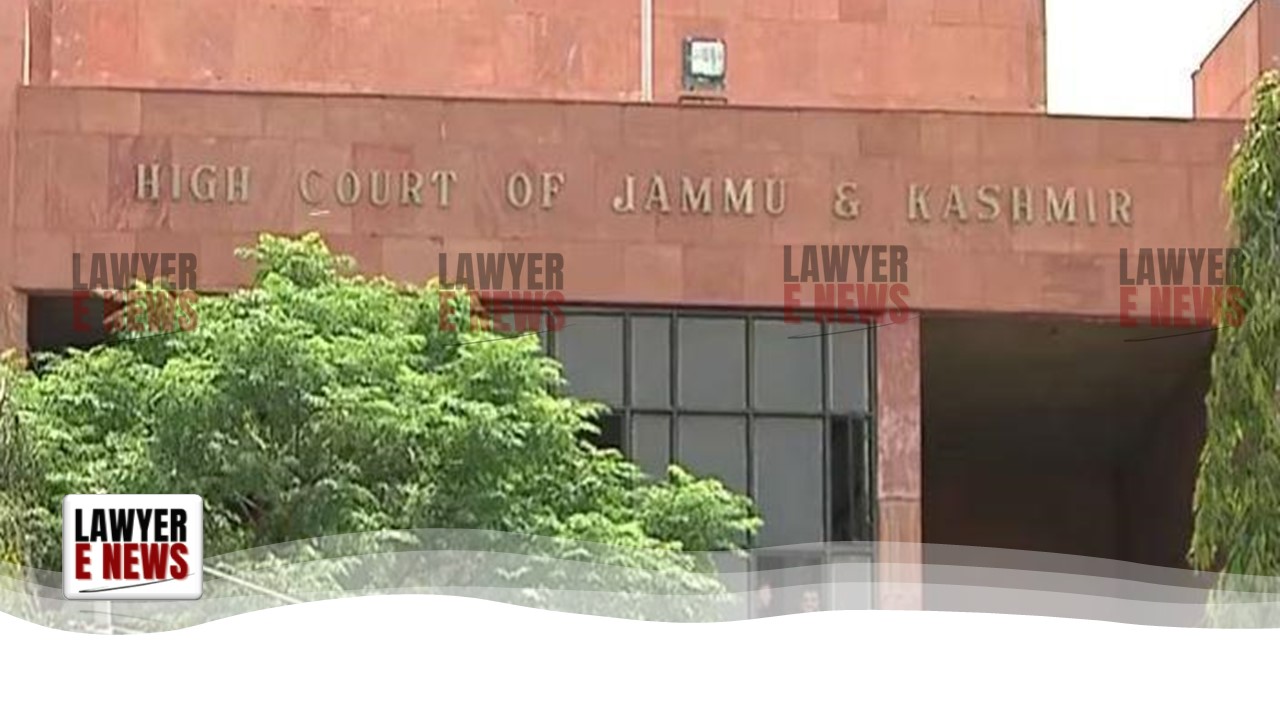-
by Admin
15 February 2026 2:16 AM



"The awarding of censure which may be a minor penalty is a blameworthy factor and is a reason good enough to deny promotion to an employee." – Justice Sanjeev Kumar, High Court of Jammu and Kashmir and Ladakh.
In a significant judgment pronounced on September 9, 2024, the High Court of Jammu and Kashmir and Ladakh reversed a writ court's decision granting promotion to V.P. Saini, a retired officer of the Airports Authority of India (AAI). The court emphasized that a 'minor penalty' such as a censure could still serve as a valid ground for denying promotion, overturning the previous ruling which had awarded Saini a promotion despite a pending censure order.
The case arose from a departmental dispute dating back to 2001 when V.P. Saini, then an Aerodrome Officer with the AAI, faced disciplinary proceedings. The proceedings resulted in a censure, which ultimately blocked his promotion to the post of Deputy General Manager (DGM). After years of legal battles, including earlier appeals, Saini approached the Writ Court seeking the quashing of the departmental proceedings and the censure order. The Writ Court not only quashed the proceedings but also directed AAI to promote Saini to the DGM position retrospectively from October 1, 1999, a decision the AAI challenged in the present appeal.
In the judgment delivered by Justices Sanjeev Kumar and Rajesh Sekhri, the High Court highlighted that the Writ Court had erred in granting relief to Saini without addressing the validity of the underlying departmental proceedings. The court noted that the Writ Court did not record any findings regarding procedural irregularities or legal violations in the enquiry that led to the censure, making its decision to quash the proceedings untenable.
Furthermore, the court clarified that even minor penalties, such as a censure, could justify the denial of promotion. The court rejected the Writ Court's reliance on a Madhya Pradesh High Court case that suggested delays in departmental proceedings should not harm the employee, stating that in Saini's case, the proceedings had been concluded within a reasonable time frame.
Censure as an Impediment: The High Court reiterated the legal position that a censure, although a minor penalty, carries sufficient weight to deny an employee a promotion. "An employee who is found guilty of misconduct is not entitled to be promoted," the court stated.
Order II Rule 2 of the CPC: The court further ruled that Saini, by failing to challenge the censure order when he filed his earlier petition in 2005, had effectively abandoned his right to contest the penalty. As such, he was estopped from raising the issue in subsequent litigation.
Delay in Proceedings: The court found that the departmental proceedings, which lasted approximately 18 months, were not subject to undue delay, thereby weakening Saini's argument that the delayed conclusion of the enquiry had prejudiced his promotion prospects.
This ruling marks a significant reinforcement of the principle that even minor disciplinary penalties can carry substantial career consequences. The court's decision is likely to impact future cases involving promotions and minor penalties within public sector organizations, potentially setting a stricter standard for employees seeking to challenge such penalties.
The case also underscores the importance of timely legal challenges and reinforces the application of Order II Rule 2 in cases where claims are split across multiple petitions. The decision has clarified that litigants must address all related grievances in their initial filings or risk being barred from raising them later.
Date of Decision: September 9, 2024
Chairman, Airports Authority of India & Others vs. V.P. Saini
Representing Advocates:
For the Appellants (AAI): Mr. Vishal Sharma, DSGI, and Mr. Yatin Mahajan
For the Respondent (V.P. Saini): Mr. K.S. Johal, Sr. Advocate, and Mr. Supreet Johal.
